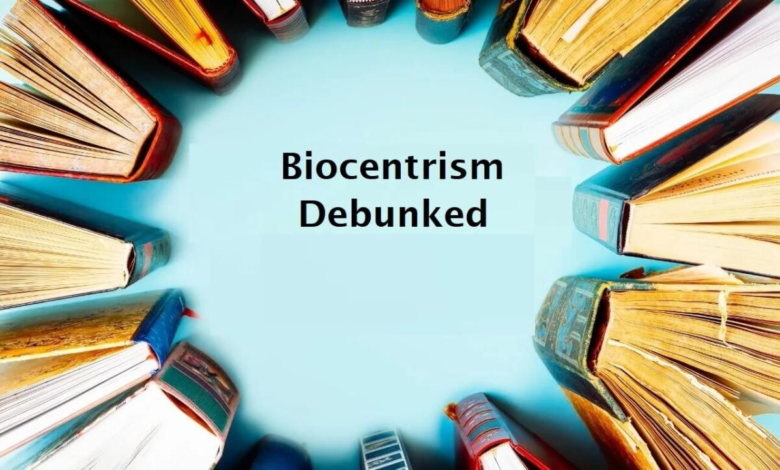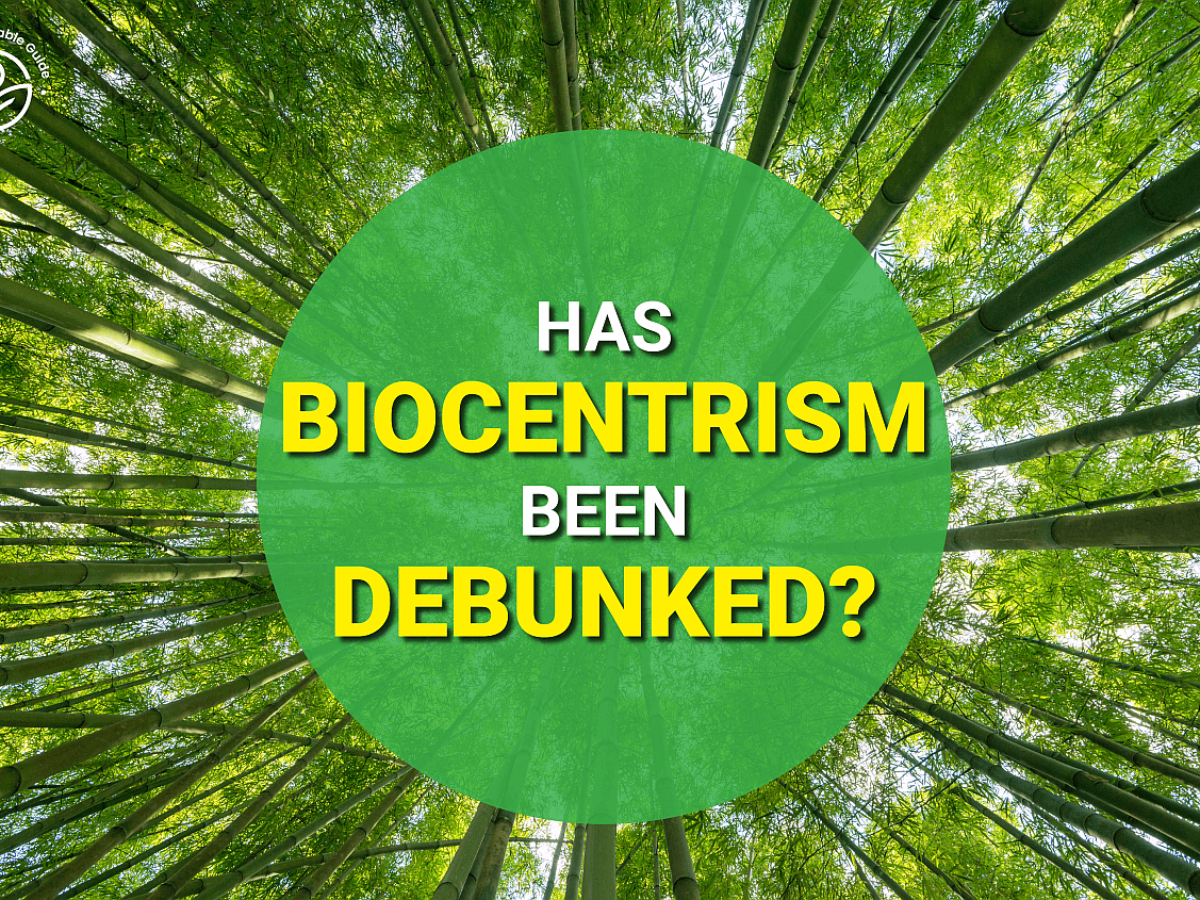
introduction
In philosophical discourse, biocentrism debunked is a subject that elicits both captivation and contention. As dialogues about the ethical considerations of nature and non-human entities gain momentum, so do the critiques aimed at dismantling the underpinnings of biocentrism. “Diverging Realities: Unveiling the Criticisms Surrounding Biocentrism” delves into the crux of these debates, dissecting the assertions that cast doubt upon the tenets of biocentric philosophy. By closely examining the primary arguments opposing biocentrism, the objective is to shed light on the intricacies of this discourse and distinguish between reality and conjecture.
Biocentrism Overview:
Before immersing ourselves in the complexities of dismantling these debunking myths, it is imperative to grasp the essence of biocentrism. Biocentrism asserts that all living entities, including humans, possess intrinsic value, challenging traditional anthropocentric viewpoints prioritizing human interests. This philosophy advocates for a holistic approach to environmental ethics, emphasizing the interconnectedness and interdependence of all living beings. As we navigate through the critiques aimed at debunking biocentrism, it remains crucial to remember the foundational principles that delineate this ethical framework.
Dismantling Biocentrism: A Scrutinizing Inquiry:
The myths enveloping biocentrism frequently materialize as criticisms questioning its practicability, feasibility, and ethical implications. Some argue that biocentrism oversimplifies intricate ecological dynamics, while others posit that it disregards the pragmatic realities of resource management. “Myths vs. Reality” will systematically scrutinize these debunking perspectives, considering both the strengths and weaknesses of biocentrism within the context of contemporary environmental ethics. Through a meticulous evaluation of the counterarguments, the goal is to foster a nuanced comprehension of biocentrism and its position in the broader discourse on humanity’s ethical obligations to the natural world.
What is Biocentrism Debunked?

In meticulously examining the moral doctrine denominated “Unraveling biocentrism debunked ,” we delve into in-depth analysis and dissection of the foundational principles buttressing this philosophical standpoint. This specific viewpoint posits inherent value for every sentient being, encapsulating the entirety of the human race. The primary focus of this discussion resides in the ethical scrutiny of the moral ramifications of biocentrism within the realm of ecological philosophy. The term “disproved” in this context signifies a thorough exploration of counterarguments and doubt enveloping biocentrism, plunging into its pragmatic viability, applicability, and potential oversights when addressing intricate ecological quandaries.
Critiques of biocentrism often orbit around the core idea that this ethical framework oversimplifies the convoluted interconnections within ecosystems. Adversaries posit that a purely biocentric perspective neglects the intricacies entailed in resource administration, human necessities, and the pragmatic obstacles associated with implementing such a philosophy in tangible circumstances. By immersing ourselves in these criticisms, the ultimate objective is to nurture a comprehensive comprehension of both the merits and drawbacks of biocentrism. This process also strives to incite a nuanced dialogue regarding the role of ethical frameworks in shaping our engagements with the environment.
It becomes imperative to approach the “Discrediting Biocentrism” concept with an unbiased mindset, recognizing the multifaceted nature of discussions encircling environmental ethics. This expedition aspires to unravel the myths and truths interwoven with biocentrism, thereby contributing to a more enlightened and impartial perspective on the ethical considerations associated with the interrelatedness of all sentient beings.
Why Do People Debunk Biocentrism Debunked?
The process of discrediting the discrediting of “Biocentrism Debunked” itself stands as a captivating facet within the continuous dialogue surrounding environmental ethics. Those who challenge the criticisms of biocentrism seek to present an equitable viewpoint, questioning the legitimacy of counterarguments and fostering a thorough comprehension of the philosophical stance. This undertaking entails meticulous scrutiny of the criticisms directed at the debunking of biocentrism, delving into the motivations propelling skeptics and their inclination to confront the challenges posed by the ethical framework.
One rationale behind debunking “Biocentrism Debunked” stems from acknowledging the significance of ethical frameworks in environmental philosophy. Advocates for biocentrism posit that it provides a valuable standpoint emphasizing the intrinsic value of all sentient beings, nurturing a more harmonious connection between humanity and the natural milieu. Through challenging the criticisms, proponents strive to underscore the pertinence of biocentrism and its role in shaping ethical considerations about ecological sustainability.
Furthermore, debunking the debunking may emerge from recognizing the inherent complexities in environmental ethics. Detractors of the criticisms may contend that the challenges presented by biocentrism often oversimplify the intricate relationships within ecosystems and neglect the potential advantages of adopting a biocentric perspective. This ongoing discourse manifests a commitment to unraveling the subtleties of ethical philosophies, ensuring that the conversation revolving around biocentrism remains dynamic and well-informed.
Biocentrism Debunked
“Biocentrism debunked” refers to the critical examination and questioning of the ethical philosophy known as biocentrism. This discourse involves scrutinizing the foundational principles of biocentrism, which asserts that all living entities, including humans, possess intrinsic value. While biocentrism is celebrated for its emphasis on interconnectedness and environmental ethics, it has not been immune to skepticism and counterarguments. The term “biocentrism debunked” encapsulates the efforts to assess the validity of biocentric principles, exploring critiques and addressing potential weaknesses in the philosophy.
Critics of biocentrism often raise concerns about its practicality and applicability in real-world scenarios. The debates surrounding “biocentrism debunked” delve into the complexities of resource management, human needs, and the potential oversimplification of ecological dynamics. Skeptics question whether a philosophy that prioritizes the intrinsic value of all living things can effectively guide decision-making in situations where competing interests and practical challenges arise. By exploring these counterarguments, the aim is to foster a nuanced understanding of the limitations and strengths of biocentrism in addressing the intricate ethical considerations related to our interactions with the environment.
It’s important to note that the discourse around “biocentrism debunked” contributes to a broader conversation on environmental ethics. It reflects a dynamic and evolving dialogue where individuals, scholars, and experts engage in thoughtful discussions, aiming to refine our understanding of the ethical frameworks that shape our relationship with the natural world. As this discourse continues, the term “biocentrism debunked” serves as a reminder of the ongoing quest for a comprehensive and balanced perspective on our ethical responsibilities in the face of environmental challenges.
The Top 10 Myths About Biocentrism [Debunked]
Biocentrism Oversimplifies Ecosystems:
One common myth about biocentrism is that it oversimplifies the complex interactions within ecosystems. Critics argue that biocentrism may neglect the intricate dynamics of ecological systems by prioritizing the intrinsic value of all living entities. However, a nuanced perspective is necessary when debunking this myth, considering that biocentrism emphasizes interconnectedness without necessarily oversimplifying the ecological complexities. test
Biocentrism Ignores Human Needs:
Another myth suggests that biocentrism neglects human needs in favor of an exclusive focus on the intrinsic value of all living things. Debunking this notion involves acknowledging that biocentrism doesn’t dismiss human interests but advocates for a balanced approach that recognizes the importance of meeting human needs while preserving the well-being of the broader ecosystem. Striking this balance is crucial for understanding the practical implications of biocentric ethics.
Biocentrism Is Impractical for Resource Management:
Some critics claim that biocentrism is impractical for resource management, mainly when competing interests and limited resources come into play. Debunking this myth involves exploring how biocentrism can offer valuable insights into sustainable resource use when applied judiciously. By considering the ethical implications of resource management through a biocentric lens, it becomes possible to address the challenges while ensuring the well-being of humans and the environment.
Conclusion
In conclusion, exploring “Myths vs. Reality: Unraveling Biocentrism Debunked” sheds light on the complex landscape of environmental ethics. As we navigate the top 10 myths surrounding biocentrism, it becomes evident that the philosophy is not immune to critique, nor is its debunking. The discourse surrounding biocentrism is an evolving dialogue where myths are confronted, realities are dissected, and a more nuanced understanding emerges.
Debunking the myths surrounding biocentrism debunked requires a careful examination of both its strengths and limitations. While critics challenge its applicability and potential oversights, supporters argue for its essential role in fostering a harmonious relationship between humanity and the natural world. The term “biocentrism debunked” encapsulates an ongoing conversation that encourages a balanced perspective on the ethical considerations embedded in our interactions with the environment.
Ultimately, as we continue to unravel the complexities of biocentrism and its critiques, the goal is to debunk myths and foster a deeper understanding of the ethical frameworks that shape our collective responsibility toward the planet. Whether embraced or critiqued, the discourse on biocentrism debunked serves as a catalyst for meaningful conversations about sustainability, conservation, and the intricate balance between human needs and the well-being of our planet.



